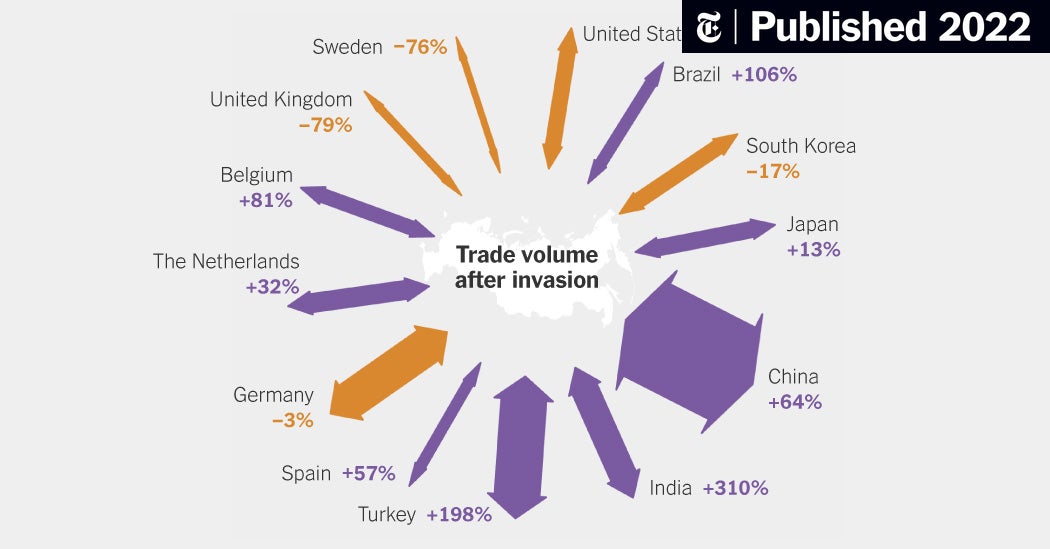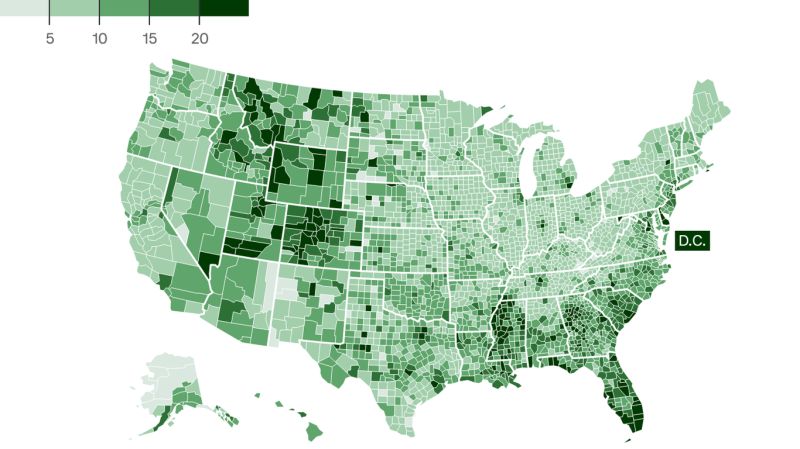Putin's War Economy: How Russia Retooled For Conflict

Table of Contents
Mobilization of Resources for Putin's War Economy
The Kremlin's war effort has necessitated a massive reallocation of resources, transforming Russia's economy into a wartime economy focused on military production and national self-sufficiency.
Redirecting Industrial Production
Russia's industrial base has undergone a dramatic shift, prioritizing military needs over consumer goods. This wartime economy prioritizes the military-industrial complex.
- Automotive to Military Vehicle Production: Many automotive plants have been repurposed to produce military vehicles and equipment, showcasing the significant resource allocation towards the war effort.
- Electronics and Technology: Production of consumer electronics has declined sharply, with resources diverted to military communications and surveillance technologies.
- Challenges: This rapid transition has faced significant challenges, including supply chain disruptions due to sanctions and technological limitations stemming from restricted access to foreign components. The effectiveness of this redirected production remains a subject of ongoing debate.
State Control and Centralized Planning
Putin's war economy is characterized by an increasing role of state control and centralized planning. The state's influence is growing within the Russian economy.
- Nationalization of Assets: The state has taken control of various businesses deemed crucial to the war effort, limiting private sector influence.
- Price Controls and Resource Allocation: The government has implemented price controls on essential goods and actively directs the allocation of resources towards military production.
- Impact on Economic Freedom: This intensified state control has further restricted economic freedom and private initiative within Russia. The resulting "command economy" aspects have far-reaching implications.
Impact on the Russian Labor Market
The war has significantly impacted the Russian labor market, leading to labor mobilization and workforce reshuffling.
- Increased Military Recruitment: The mobilization of reservists and volunteers has created significant labor shortages in various sectors.
- Sectoral Imbalances: Industries like construction and agriculture have faced substantial labor shortages, impacting overall production.
- Wage and Salary Impacts: The shift in labor demand has affected wages and salaries across various sectors, leading to wage stagnation or even decline in some areas. The use of forced labor in occupied territories further complicates the labor market dynamics.
The Impact of Sanctions on Putin's War Economy
Western sanctions, intended to cripple the Russian economy and limit its capacity to wage war, have had a profound impact, although their effectiveness is a subject of ongoing debate.
Financial Sanctions and Their Effects
Financial sanctions have been a key element of the West's response, aimed at limiting Russia's access to international finance.
- Impact on the Ruble: While the ruble initially stabilized, its long-term value remains vulnerable to fluctuations and the ongoing conflict.
- Restrictions on International Trade: Sanctions have significantly curtailed Russia's access to international trade, limiting imports and exports.
- Access to Foreign Capital: Russia's access to international capital markets has been severely restricted, hindering its ability to finance its war effort and economic development.
Technological Sanctions and Import Substitution
Technological sanctions are aimed at limiting Russia's access to advanced technologies crucial for its military and civilian sectors.
- Technological Blockade: Restrictions on the import of semiconductors, software, and other advanced technologies have hampered Russia's industrial development and military modernization efforts.
- Import Substitution Policy: Russia has attempted to mitigate the impact of sanctions through an import substitution policy, focusing on domestic production. The success of this strategy remains to be seen.
- Impact on Technological Development: The long-term impact of technological sanctions on Russia's technological advancement and innovation capabilities could be profound.
Evolving Trade Relationships and New Partners
Facing Western sanctions, Russia is forging new economic alliances and trade partnerships.
- Increased Trade with China and India: Trade with China and India has increased significantly, providing alternative markets for Russian exports and sources of imports.
- Parallel Import Channels: Russia has also relied heavily on parallel import channels to bypass sanctions, importing goods indirectly through third countries.
- Geopolitical Realignment: The shifting trade relationships reflect a broader geopolitical realignment, with Russia increasingly reliant on non-Western partners.
Adaptation and Resilience in Putin's War Economy
Despite the significant challenges, Putin's war economy has shown a degree of resilience, largely fueled by natural resources and the informal sector.
The Role of Natural Resources
Russia's vast natural resources, particularly oil and gas, continue to play a crucial role in sustaining the economy.
- Energy Exports: Despite sanctions, Russia continues to export significant quantities of energy, generating substantial revenue.
- Impact on Global Energy Prices: Russia's energy exports have significantly impacted global energy prices, underscoring its geopolitical leverage.
- Commodity Dependence: Russia's continued reliance on energy exports highlights its vulnerability to fluctuations in global commodity markets.
Informal Economy and Shadow Banking
The informal economy has expanded significantly as a means of circumventing sanctions and maintaining economic activity.
- Extent of the Informal Economy: The exact size of the informal economy is difficult to measure, but its role in mitigating the impact of sanctions is undeniable.
- Challenges in Measurement: The hidden nature of the informal economy makes accurate measurement and analysis extremely challenging.
- Implications for Economic Transparency: The growth of the informal economy undermines economic transparency and governance in Russia.
Long-Term Economic Prospects
The long-term consequences of Putin's war economy on Russia's economic future remain uncertain.
- Potential for Stagnation: The ongoing war and sanctions pose significant risks to long-term economic growth.
- Long-Term Growth Prospects: The structural changes brought about by the war and sanctions could significantly hinder Russia's future economic development.
- International Isolation: Continued international isolation will further limit Russia's access to technology, investment, and global markets.
Conclusion
Putin's war economy, while demonstrating a degree of resilience through resource exploitation and the informal sector, remains deeply vulnerable to the long-term effects of sanctions and the enormous cost of the ongoing conflict. The redirection of resources, state control, and impact on the labor market are all significant facets of this evolving economic landscape. The effectiveness of sanctions, the development of new trade relationships, and the overall long-term economic prospects for Russia remain significant points of contention and require further study. To further understand the complex dynamics of Putin's war economy, explore additional resources and stay informed about the latest developments in this rapidly evolving situation.

Featured Posts
-
 Love Islands Liberty Poole Dazzles In A Red Mini Dress
May 29, 2025
Love Islands Liberty Poole Dazzles In A Red Mini Dress
May 29, 2025 -
 Malcolm In The Middle Revival Bryan Cranston Provides Update On Potential Return
May 29, 2025
Malcolm In The Middle Revival Bryan Cranston Provides Update On Potential Return
May 29, 2025 -
 Producers Tease Continuation Of Caitlyn And Vis Arcane Storyline
May 29, 2025
Producers Tease Continuation Of Caitlyn And Vis Arcane Storyline
May 29, 2025 -
 Investing In The Future Locating The Countrys Top Business Hot Spots
May 29, 2025
Investing In The Future Locating The Countrys Top Business Hot Spots
May 29, 2025 -
 Jonathan Tah Transfer Target Profile For Manchester United
May 29, 2025
Jonathan Tah Transfer Target Profile For Manchester United
May 29, 2025
